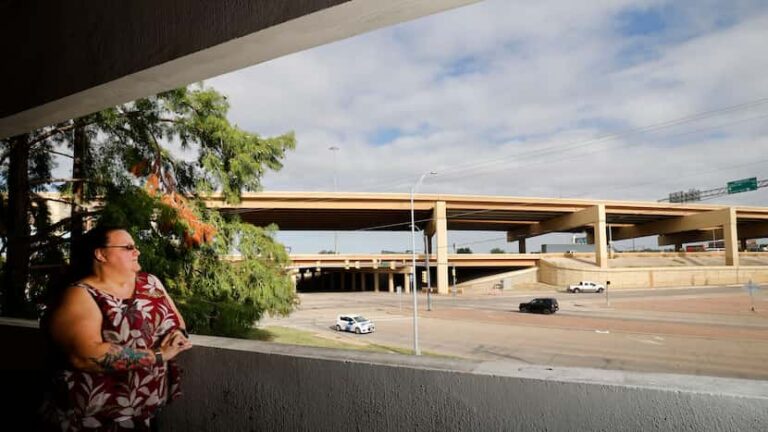
Demara Morrow is the chief financial officer of a small Dallas woodworking company that manufactures and installs cabinets for customers throughout the metropolitan area. To be profitable, the company needs reliable roads with predictable travel times.
Because tolls are more predictable for projects along the Dallas North Tollway, Morrow said toll costs were built into the project, “because we knew we were going to have to go through the toll road to get there.”
The situation is different on toll roads that use dynamic pricing, a system in which drivers must pay extra to travel in the toll lanes when the free lanes are at their busiest. The idea is that this will improve traffic flow during peak hours. “You don’t know how much you’re going to pay.”
To estimate tolls, the company’s delivery trucks are equipped with GPS trackers that follow routes from its offices in southeast Dallas. Morrow sends customers’ addresses directly to the trackers, so drivers can find the most efficient route. There are also problems when drivers use their mobile phones, she said. “Whether it’s Android or Apple, even if you set it to not use tolls, if you don’t unclick the highways, it can still send the driver onto a toll road.”
It can get expensive.
On toll roads such as the expressway to Fort Worth, she said, it’s not uncommon for her to make five trips a day between the company’s offices south of Dallas and client sites, paying more than $25 a trip and more than $100 total.
Sometimes drivers accidentally enter toll roads, or their GPS devices direct them onto toll roads to avoid hazards and traffic jams, she said. Many of the trucks also have to enter undeveloped areas where roads and other rights-of-way have not yet been fully paved. Drivers sometimes stop to purchase supplies on the way to a job site, putting them on time to get there.
Once on the toll road, it can be hard to get off, and sometimes new hires haven’t purchased their passes yet, causing tolls to skyrocket, she said.
“There are very limited avenues to understand where they are, what they’re doing and get out of there.”
Morrow’s job is to contact the North Texas Toll Road Authority to pay the company’s tolls, but the authority won’t agree to a payment plan. “It’s all or nothing,” he says. “The toll structure is out of control. It can’t be mitigated. There’s nothing you can do about it, and the fees are too high. It’s just a profit maker.”
The fees and penalties also seem arbitrary, she said. Those bills can run up to more than $1,000 a month. “You can’t negotiate with the NTTA and say, ‘Hey, what can I do? How can we get this resolved?’ You can’t negotiate with the NTTA. You can’t negotiate with their collection agency. You can’t make a payment arrangement.”
Her company has no choice but to pay up or have its registration blocked or its vehicles impounded.
At one point, she noted the tolls that will cost about $120 to go from Cockrell Hill in Dallas to downtown Fort Worth in the summer of 2022.
Another situation: A company had to pay tolls for a stolen vehicle.
“Even though I sent in the police report and all the other paperwork, I still had to pay a $500 toll.”

